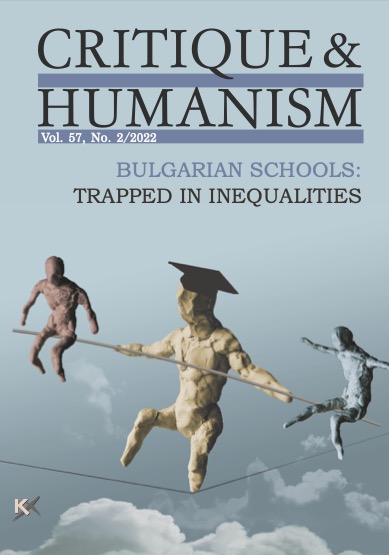Social Inequalities Reloaded: ‘Quality of Education’ Concept Adapted to Social Environment
Social Inequalities Reloaded: ‘Quality of Education’ Concept Adapted to Social Environment
Author(s): Petya KabakchievaSubject(s): Social Sciences, Education, Sociology, Sociology of Education
Published by: Фондация за хуманитарни и социални изследвания - София
Keywords: quality of education; values-based and instrumental functions of education; social inequalities; social environment; social mobility
Summary/Abstract: This article compares the normative visions of quality of education (of the World Bank, OECD, UNICEF, UNESCO, and Bulgaria’s Pre-school and School Education Act – PSEA) with the everyday perceptions of respondents working in Bulgarian education, and with their assessment of the quality of education in different types of schools in Bulgaria. The study’s (qualitative research conducted in 2018) conclusion is that there is no connection between the declared objectives of the PSEA, which unite the modern and humanist visions of international documents, and actual practice. This is due to two reasons. The first reason has to do with the fact that while the normative visions are informed by the humanist-holistic notion of education, the practical view of education is driven solely by economic considerations. The second reason comes from the actual state of affairs in Bulgaria: quality education is thought of and implemented as ‘special profile’ education that takes into consideration pupils’ family and social environment (the ethnic group and social status of parents, the place of residence, ‘the street’). Respondents shared the following views on the relationship between school education and pupils’ subsequent life trajectories: Pupils attending a rural (often Roma) primary school (or a school in a poor neighbourhood) go on to vocational high schools and low-skilled jobs on the local market. Pupils attending an elite primary school have private tuition and go on to elite high schools, higher education and high-skilled jobs on the national or global market. These two extreme varieties of educational and life trajectories presuppose social homogenization of pupils because they attend schools that are determined by and conform to their social environment. The social environment predetermines the school and the future life trajectory of children, and the school is just a tool for reproducing social inequalities. This situation inherently blocks the normative vision of children’s equal access to quality education in Bulgaria.
Journal: Критика и хуманизъм
- Issue Year: 2/2022
- Issue No: 57
- Page Range: 65-83
- Page Count: 19
- Language: English
- Content File-PDF

